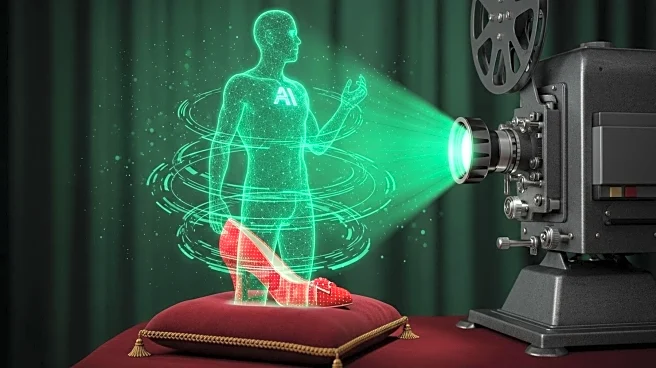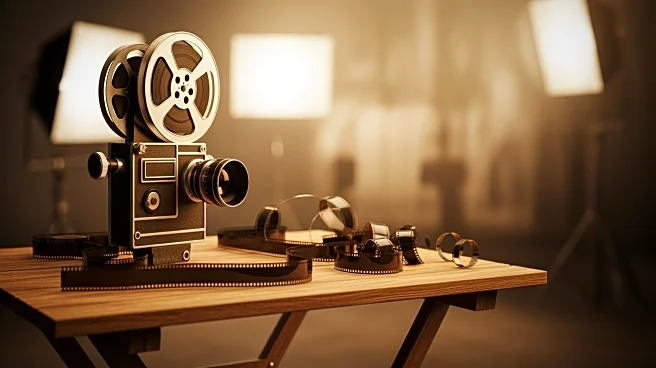What's Happening?
The Sphere in Las Vegas has introduced a unique twist to its screening of 'The Wizard of Oz' by incorporating AI-generated cameos of Warner Bros. Discovery CEO David Zaslav and the Sphere's executive chairman and CEO, James Dolan. These brief appearances involve superimposing their likenesses onto background characters in the film, a move announced by Dolan during a special walkthrough of the experience. The AI modification is part of a larger effort to adapt the classic film to the Sphere's unconventional screen format, aiming to attract tourists despite ongoing debates about AI's role in the entertainment industry. The use of AI in this context has been defended by the Sphere's visual effects specialist, Ben Grossmann, who claims it has led to increased employment of artists for the project.
Why It's Important?
This development highlights the growing intersection of AI technology and the entertainment industry, raising questions about the ethical implications of using AI to alter classic films. The decision to include AI-generated cameos of high-profile executives like David Zaslav underscores the potential for AI to reshape how audiences experience traditional media. While the project has reportedly increased employment for artists, it also fuels the ongoing debate about AI's impact on creative jobs and the authenticity of artistic works. The controversy surrounding this AI application reflects broader societal concerns about technology replacing human roles and altering cultural artifacts.
What's Next?
As the screening series continues, it remains to be seen how audiences will react to the AI-enhanced version of 'The Wizard of Oz.' The response could influence future uses of AI in film and media, potentially setting a precedent for similar projects. Stakeholders in the entertainment industry, including filmmakers, artists, and audiences, may engage in further discussions about the balance between technological innovation and preserving the integrity of classic works. The outcome of this experiment could impact how AI is integrated into future cinematic experiences and whether it becomes a standard practice or remains a controversial novelty.
Beyond the Headlines
The use of AI in this context also raises questions about the ownership and modification of cultural heritage. As AI technology becomes more prevalent, legal and ethical frameworks may need to evolve to address issues of consent, intellectual property, and the preservation of original artistic intent. This case could serve as a catalyst for broader discussions about the role of AI in cultural production and the responsibilities of those who wield such technology.











